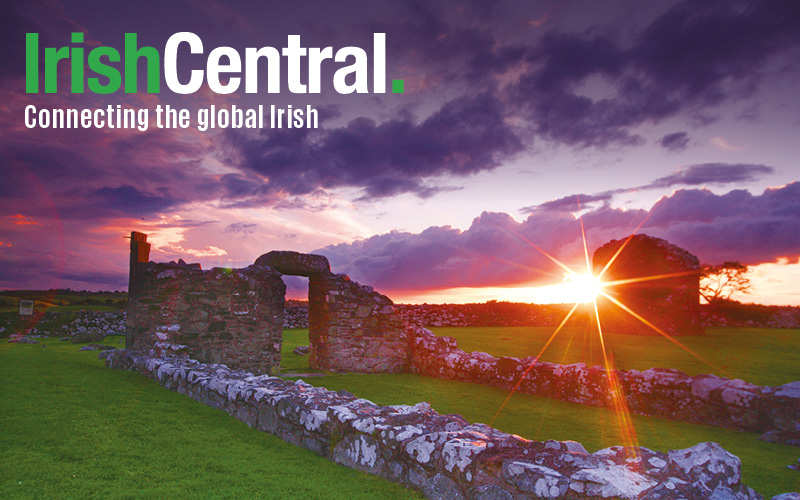| Francis Cardinal Spellman. |
Brooklyn native and Vietnam vet John Flanagan identifies himself proudly as “the fifth child of first generation Irish.” And like many Irish Americans born after World War II, Flanagan felt a strong sense of American patriotism.
“I was very happy to be an American and I understood what it meant,” he says. “Of course, growing up Catholic, every morning we said the Pledge of Allegiance and prayer; I mean, that’s just the way it is.
“You waved flags, you went to parades, you were proud to see your uncles marching in the Veterans Day parades, and that…patriotism in there.”
That’s one reason Flanagan went off to fight in Vietnam, as he explains it in a fascinating new book called Bringing it All Back Home: An Oral History of New York City’s Vietnam Veterans by Philip F. Napoli.
This book comes just as efforts are afoot on both sides of the Atlantic to remember the Irish role in the Vietnam War. Earlier this month, officials in Ennis, Co. Clare, began commissioning ideas to create a town memorial to 29 Irish-born people who died while serving during the Vietnam conflict.
“The venture, organized with the Irish Vietnam Veterans Memorial Project headed by American Matthew Carroll, will cost €130,000, but funds will be raised privately,” Irish Independent reporter Graham Clifford writes.
“In June 1998, I visited the Vietnam Veterans' Memorial in Washington and was shocked to see so many Irish names in the black marble –- Murphy, O'Reilly, McCarthy, O'Callaghan and Gallagher.”
Indeed, thousands of working class Irish Americans joined the fight for a variety of reasons -- often, simply, because they’d been drafted.
And that’s where things get messy. Commemorating the service of Irish and Irish American soldiers also requires that we recall this was not only one of the most divisive moments in American history, but particularly in Irish American history.
On one side were Irish Catholics who came of age during World War II and the Cold War 1950s. This was the era when it appeared the Irish could finally feel comfortable in America.
Instead of being viewed as suspicious, Irish Catholics were patriotic and proudly anti-Communist – for better or worse.
“Some were attracted to Republican Joseph McCarthy during the Red Scare of the 1950s,” Ronald H. Bayor and Timothy J. Meagher write in their book The New York Irish. The infamous red-baiting senator “found a ready audience among many Irish New Yorkers.”
Indeed, McCarthy received lusty cheers when he was embraced by Francis Cardinal Spellman at an NYPD Holy Name Society breakfast in 1953.
So, as the Vietnam era dawned in the early 1960s, many Irish Americans – lifelong members of the Democratic Party – were growing increasingly conservative. (The historical joke goes that the Irish finally had something to conserve.)
So, when the war heated up, many Irish Americans felt a particularly acute kind of patriotism. Their adopted country was finally treating them well, and many knew people who were serving on the front lines. Therefore, many Irish Americans had little use for the anti-war movement.
Their leader, in many ways, was the aforementioned New York Archbishop Cardinal Spellman, a fierce anti-Communist who had little use for the counterculture – just like many of the patriotic, blue collar Irish Americans who filled the pews of parishes across the boroughs of New York.
And yet, as the war continued to take a harsh toll on the Irish American community, some argued that the Irish should oppose the war. They were, after all, familiar with the costs of war and colonialism.
Others, such as the radical priest Berrigan brothers, argued that their Catholic faith also should compel Irish Americans to oppose the war.
In the end, families would be torn apart. James Carroll vividly captured these Irish American tensions in his Pulitzer Prize winning book, An American Requiem: God, My Father and the War That Came Between Us.
When the Vietnam memorial is erected in Clare, we must recall those who made the ultimate sacrifice. But we should also pause to recall the broader toll the Vietnam War took on Irish America.
(Contact “Sidewalks” at tdeignan.blogspot.com)




Comments